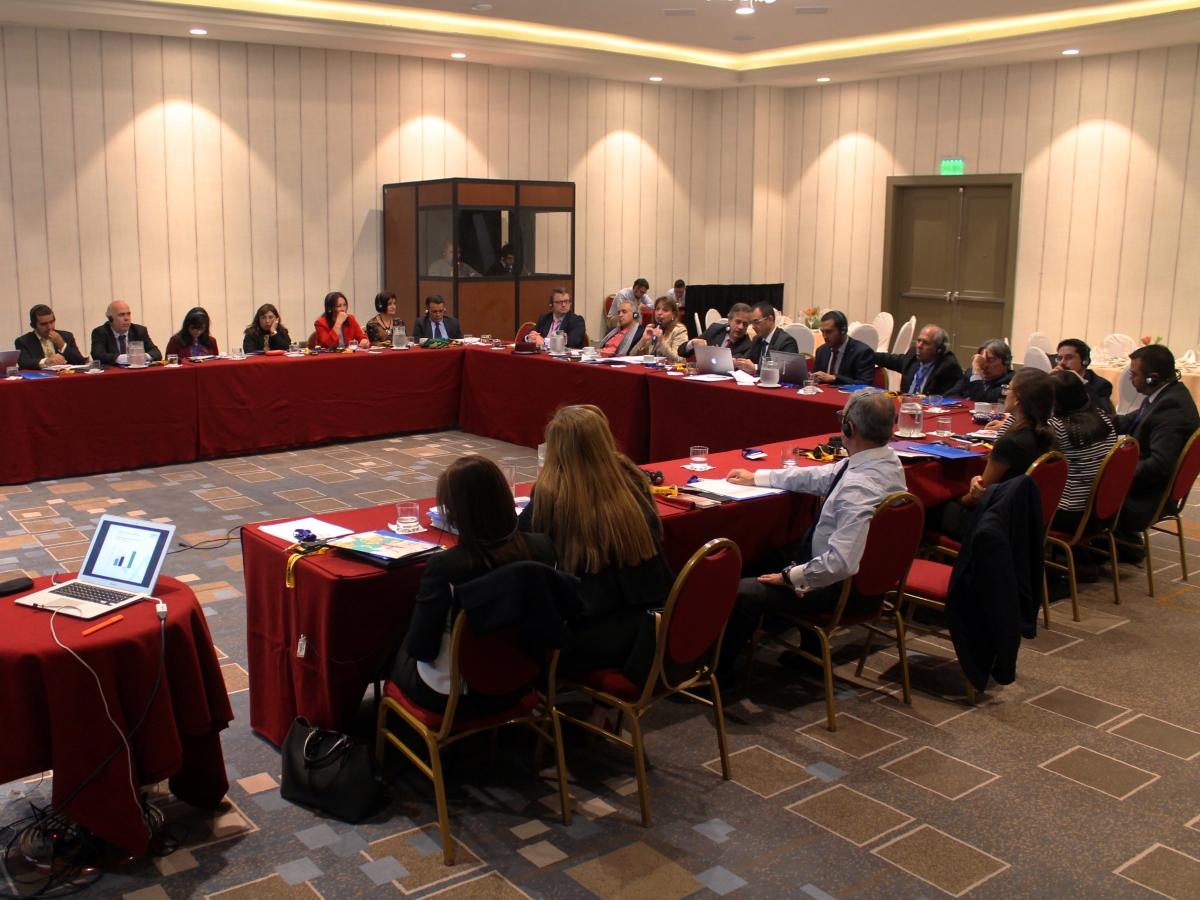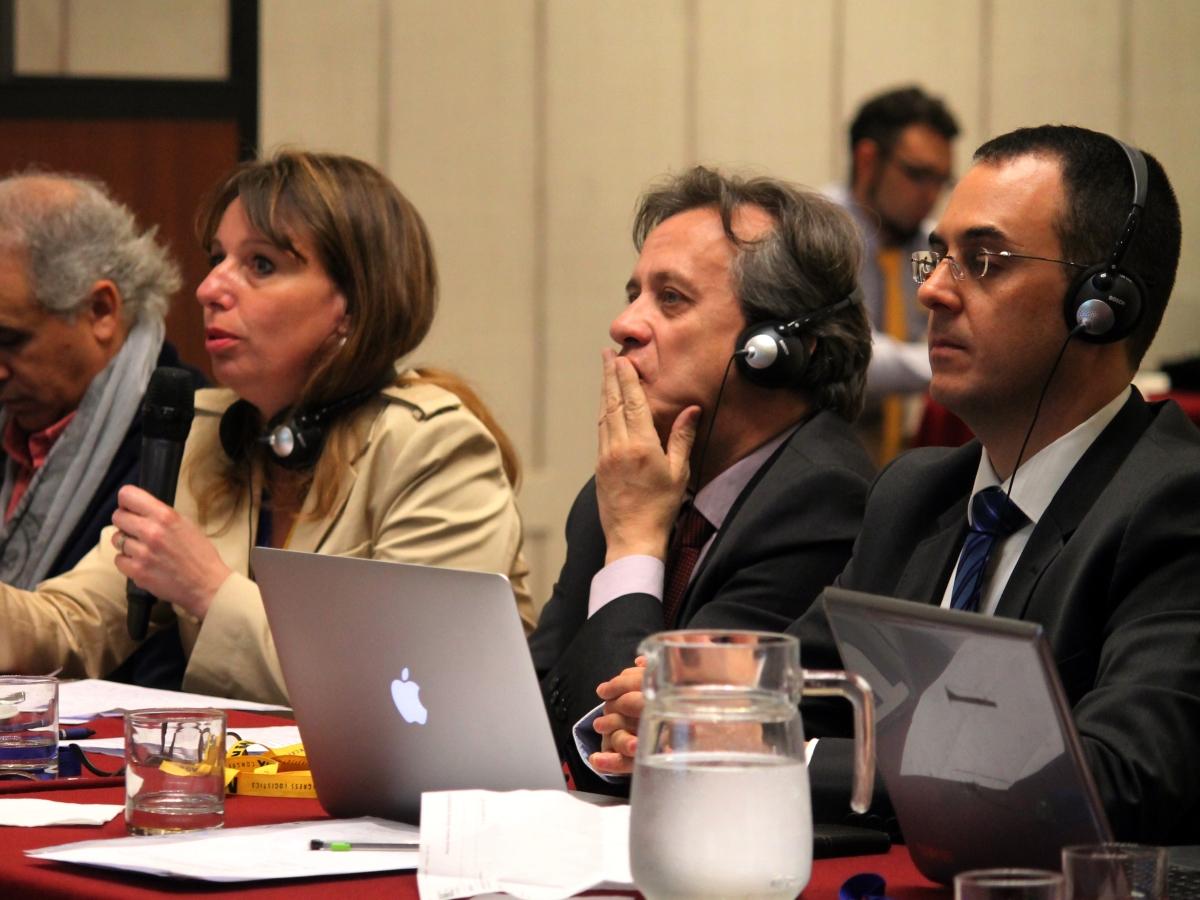Heads of Copyright Offices from the Latin American Region Meet at CISAC Event in Santiago

Organised by CISAC’s Regional Office for Latin America and the Caribbean, decision-makers from throughout the region convened in Santiago, Chile for a meeting with CISAC officials and society heads. Government officials and society CEOs from Argentina, Brazil, Mexico, Uruguay, Bolivia, Panama, Venezuela, Peru, Cuba, Chile and Costa Rica met on 13 April to discuss priorities in the Latin American region. Key topics included good governance and best practices in collective management, the challenges in the digital market, the campaigns for the resale right and the push for audiovisual creators’ right of remuneration.
The gathering continues the work of the “Agreement of Montevideo”, a landmark agreement signed in 2013 between a group of Latin American societies and government agencies from the region. This unique initiative was created to promote cooperation between societies and copyright offices as well as to provide a platform for informal exchange of information and the development of action plans for the protection and promotion of creators’ interests.
See the photo gallery.
CISAC Director General Gadi Oron opened the exceptional event with a welcome speech, highlighting the importance of establishing a framework for cooperation between societies, CISAC, and government agencies. Regional Director for Latin America and the Caribbean Santiago Schuster reminded the group of the recent agreement signed between CISAC, The Government of Colombia, and local society SAYCO, as a precedent for other potential actions in the region.
An analysis of the task in addition to proposals for the 2016-2017 biennium were also presented. Following this, the visual artists' campaign for the recognition of the resale right continued the event, with a guest presentation from French society ADAGP CEO Marie-Anne Ferry Fall. The Head of Copyright for the Government of Brazil Marcos Souza presented the new Group of Latin American and Carribean Countries (GRULAC) initiative on the digital market which was recently submitted to the World Intellectual Property Organization (WIPO). He explained the challenges in the protection of authors’ rights in the digital market and the need to develop a new framework that would secure fair remuneration and adequate protection for individual creators.

